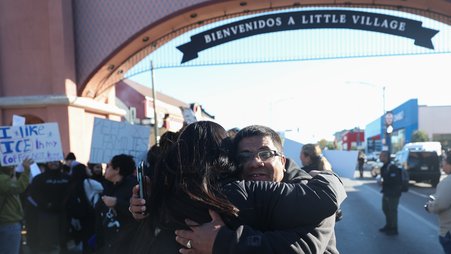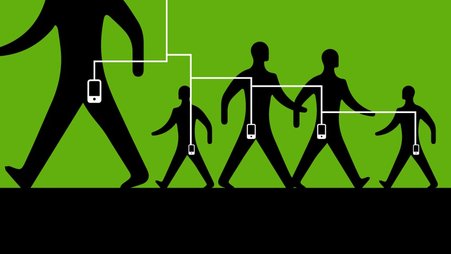New Snowden documents published by The Intercept show the NSA and GCHQ targeted the media organization WikiLeaks with a variety of surveillance tactics, and even spied on its readers. This is a shocking attack on the freedom of the press, and anyone who supports the principles behind the First Amendment should be worried.
As The Intercept's Glenn Greenwald and Ryan Gallagher reported:
The efforts – detailed in documents provided previously by NSA whistleblower Edward Snowden – included a broad campaign of international pressure aimed not only at WikiLeaks founder Julian Assange, but at what the U.S. government calls “the human network that supports WikiLeaks.” The documents also contain internal discussions about targeting the file-sharing site Pirate Bay and hacktivist collectives such as Anonymous.
The two spy agencies used a variety of tactics: GCHQ conducted surveillance on the readers of WikiLeaks by collecting the IP addresses of anyone who visited the site and even seeing what search terms brought Internet users there—potentially in an effort to find their sources. The NSA considered designating WikiLeaks a “malicious foreign actor” that would allow it circumvent restrictions on spying on Americans (it’s unclear if they ever did).
As Cato Institute’s Julian Sanchez noted, “All the reassurances Americans heard that the broad authorities of the FISA Amendments Act could only be used to ‘target’ foreigners seem a bit more hollow when you realize that the ‘foreign target’ can be an entire Web site or online forum used by thousands if not millions of Americans.”
The Obama administration also pressured various foreign governments to prosecute WikiLeaks editor Julian Assange after they published the Afghanistan War Logs. Such prosecution in the US would be blatantly unconstitutional. As the ACLU's Jameel Jaffer said, "the United States should not be urging allied countries to pursue prosecutions that would be unconstitutional if undertaken here at home.”
This isn't the first time we've heard of the NSA going after a media organization. Der Speigel reported months ago that Snowden documents revealed NSA had spied on the communications of Al-Jazeera journalists. A New Zealand paper alleged NSA helped New Zealand spy on a McClatchy reporter in Afghanistan when the NZ government wanted to find one of the reporter's sources. And of course, there is the general chilling affect that mass surveillance has on all types of reporting, which is best exhemplified in a court brief by Reporter's Committee for Freedom of the Press that supported a constitutional challenge to the NSA's phone records program.
It’s now clear that the NSA and GCHQ are not just a threat to privacy, but also to press freedom. Both the US and UK need to pass new laws that better protect media organizations from surveillance merely for doing their job as journalists.
Despite the clear implications for press freedom, some NSA defenders have suggested these new revelations aren't surprising because WikiLeaks had classified documents. But would these tactics be okay if they were aimed at the London bureau of the New York Times? Or if GCHQ were spying on the readers of the Guardian? Or if the US government was pressuring European governments to prosecute Der Spiegel?
Of course not. There should be just as much outrage in those situations as now. Julian Assange said in response to the story, “Today, we call on the White House to appoint a special prosecutor to investigate the extent of the NSA’s criminal activity against the media, including WikiLeaks, its staff, its associates and its supporters.” We echo his call.
Note: Glenn Greenwald and Edward Snowden are members of Freedom of the Press Foundation's board or directors.




